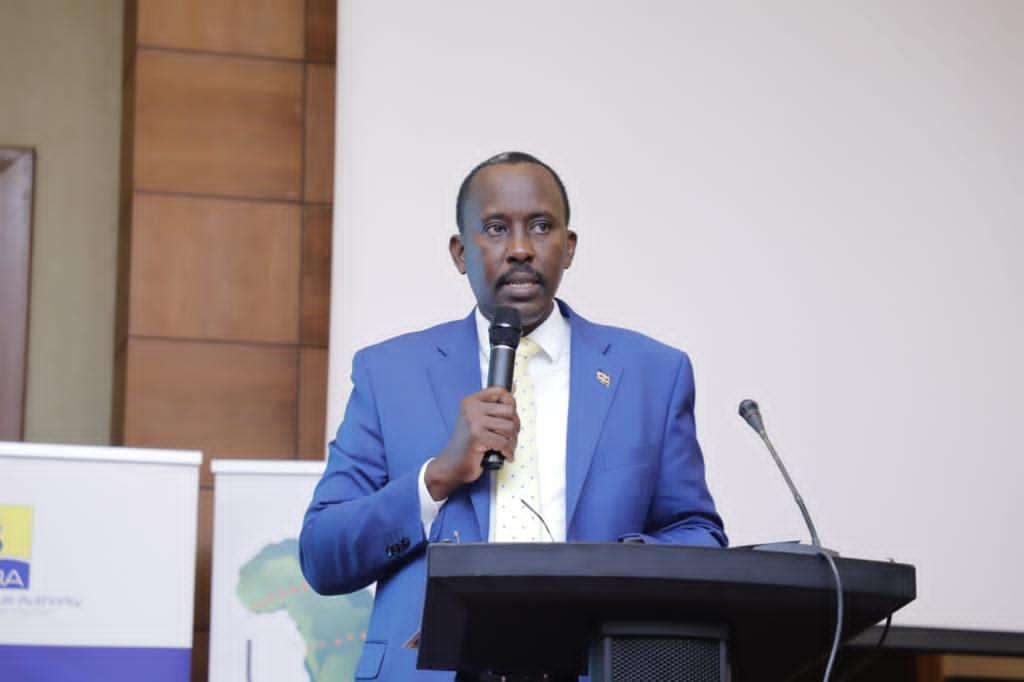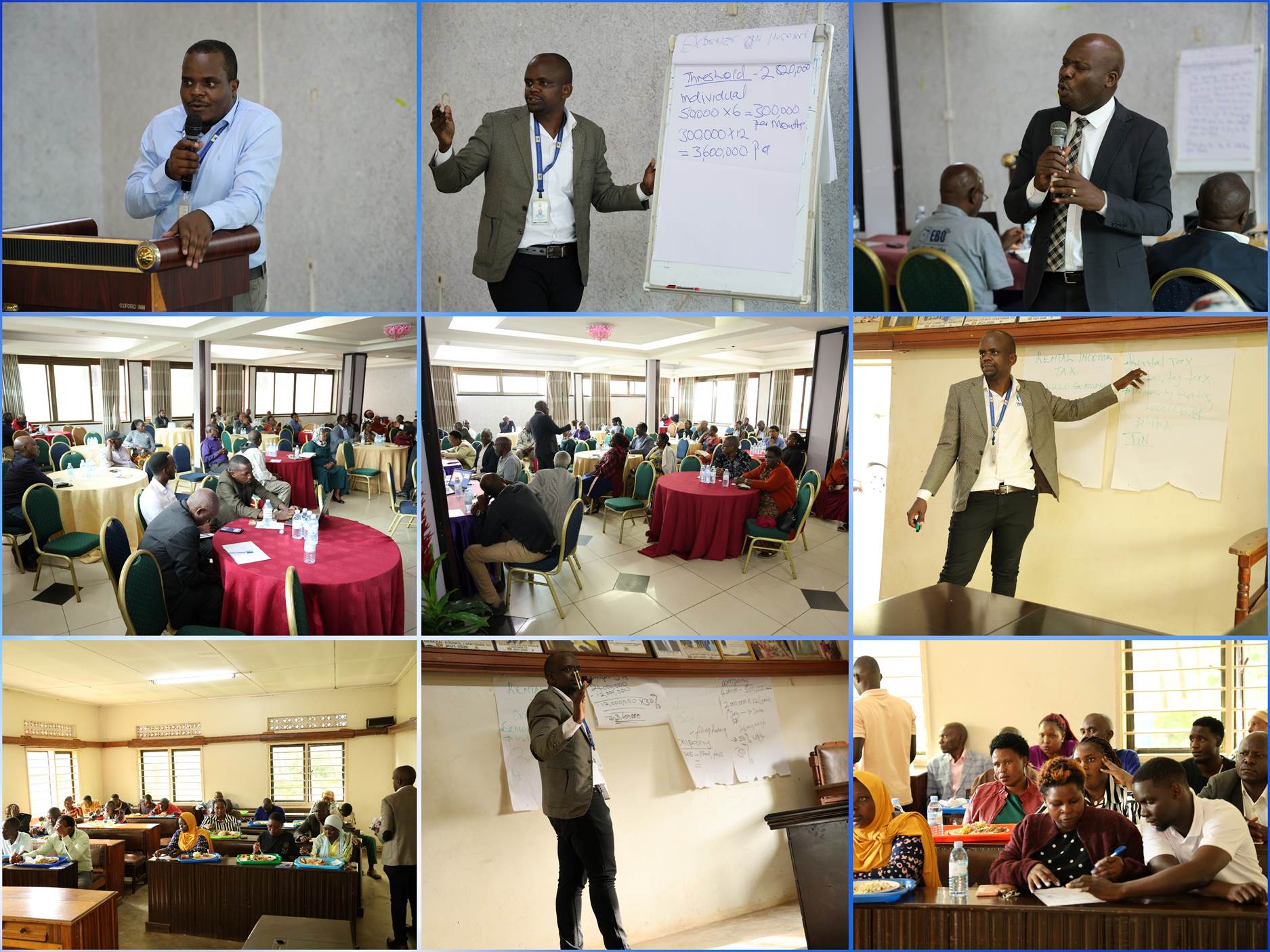Fellow Citizens,
Sixty years ago, as the colonial curtains fell, I believe our forefathers envisioned and believed in an independent Uganda where all resources for development would originate from within. We continue to remain steadfast in our pursuit of this purpose. I salute and thank you, the brave heroes of our nation, who diligently honour your civic obligation towards the attainment of this mission.
Taxation, for generations, has been a core tool used to organise and build communities. In the case of Uganda, taxation dates to 1900 when the “Hut and Gun Tax” were introduced through the Buganda Agreement. When we attained independence in 1962, the role of tax administration was passed onto the post-colonial government and in 1964, district councils were responsible for collecting local taxes.
In this era, tax administration was characterized by several challenges such as bureaucratic processes, high tax rates and tariffs. There was also heavy reliance on international trade taxes that contributed as high as 68% of total revenue and low revenue collections due to a very narrow tax base, and a very low tax to GDP ratio. Administratively, revenue collection and accountability mechanisms were relatively ineffective and costly. They involved the collection of cash in offices and using one commercial bank as a collection point to the detriment of taxpayers.
When the National Resistance Movement government came into power in 1986, revenue collections stood at a paltry Ush 2.84 billion with a Tax to GDP ratio of 6.85%.
The government instituted reforms under the Ten-Point Programme. Point number five was “Building an Independent, Integrated, and Self-sustaining National Economy”. This led to the formation of the Uganda Revenue Authority (URA) in 1991 as one of the reforms to improve our economic performance and self-sustenance as a nation.
URA key milestones 31 years later
- Revenue growth
There has been significant improvement in revenue collections and growth from 1991 to date. Revenue collections have grown from UGX 180.46 billion in FY1991/92 to Ush 21,658 Billion in FY 2021/22, with an average annual growth of 17.86%. The Tax to GDP ratio has also increased from 6.83% in FY 1991/92 to 13% in FY 2021/22, after stagnating between 11% and 12% for the previous 20 years from 2001 to 2021. In the last two years, it has risen by 1.5%.
- Improved tax policies
Various reforms have been undertaken to modernise our tax policies, simplify tax systems and reduce performance inefficiencies in tax administration. The dominant tax policy reforms have been related to tax rates and thresholds in the VAT, Income tax, Excise duty, stamp duty, and Non-Tax Revenue. The introduction of the Taxpayer Identification Number (TIN) in 1993 as a unique identifier for all taxpayers and the introduction of the self—assessment system in 1998 gave the taxpayer the right to manage their tax affairs. The formation of the Tax Appeals Tribunal under the Tax Appeals Tribunal Act was established in 1997 for redress to taxpayers. There are many other reforms.
- Improved Administrative measures
There has been a deliberate and focused effort to improve tax administration by building a culture of tax compliance and enhancing public confidence through improved service delivery. Key milestones include use of technology to enhance process management and service delivery including electronic registration, e-filing, e-declaration and e-payment of taxes, Non-Intrusive Inspection technology at the borders, creation of a data warehouse for data management, upgraded the contact center, introduced smart digital solutions such as the the Digital Tracking Solution (DTS) and the Electronic Fiscal Receipting and Invoicing Solution (EFRIS). We have also instituted single points of service with other government agencies and also One stop Border Posts (OSBPs) where Government border agencies of two countries operate under one roof to jointly clear goods.
We have also improved stakeholder relations and collaboration, particularly in the areas of information exchange and third-party data integration and analysis, and we have improved staff development through capacity building to enhance innovations and build specialized tax capabilities in core business areas such as tax audits, tax investigations, taxation of the digital economy, international taxation, and data analytics.
What Uganda at 60 means to URA
At 60 years, Uganda’s economy is ripe. There has been tremendous economic growth averaging 6.1% since 1986, due to the government’s deliberate reforms. Statistics have shown that our economy has expanded nearly ten times to Ush148.3 trillion (US$40.1 billion) in 2020/21 from Ush14.4 trillion (US$3.9 billion) in 1986.
Uganda’s economy has never been as large, diverse and full of opportunities as it is today. It is one of the fastest-growing economies in the world.
As revenue mobilisers, this is good news because there is potential, and the possibilities are wide open for us to proclaim our true economic sovereignty where we fully fund our national budget. Currently, we are only contributing 50% of our budget and sourcing the other half from borrowing which usually comes with a lot of unfavourable conditions including a big burden of interest.
As URA, we have purposed to change this trajectory by being the fulcrum of Uganda’s efforts to harness the opportunities available to move her forward as a country.
As you noticed, there were no new taxes introduced this financial year. We have instead purposed to increase the tax register by bringing on board unregistered traders and undeclared employees to start contributing to the national coffers. The taxpayer register currently stands at 2.8 Million. This is, however, low. Our target is to have at least 5 Million taxpayers on the register by the end of FY 2024/2025. It, therefore, necessitates finding ways of bringing in more taxpayers on the register. I urge all patriotic citizens to join us in this effort by fully registering and paying your due amount of taxes. I also request that you provide us with information on those who are not contributing their fair share.
Fellow countrymen and countrywomen, as we celebrate our 60th independence, let us remember that attaining our self-reliance rests on the commitment and trust of each one of us. We are in an era of responsibility – a recognition that each one of us has a duty to ourselves and our country that we gladly accept, and confident in the knowledge that there is nothing more satisfying than giving our all to realize that goal. Let us all get involved in this journey. This is both the cost and the honour of true citizenship.

For God and My Country.
John Rujoki Musinguzi
COMMISSIONER GENERAL URA










